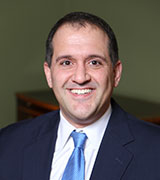Greek Americans Must Lead The Charge Against Xenophobia

by Endy Zemenides
Since the outbreak of COVID, about 3,800 hate crimes have been perpetrated against Asian-Americans. Reports have detailed how attackers often blamed their victims for the pandemic. The effect of “China virus” and “Kung Flu” being used in public debate has been obvious and deleterious. This past week, this epidemic of anti-Asian violence hit a tragic peak, with the murders of six Asian-American women in Atlanta. In the aftermath of this latest hate crime, there has been a nationwide outcry. Statements, Congressional hearings, hashtags. There have also been protests (as there are whenever we suffer other hate crimes) that “this isn’t America?”
But is what Asian-Americans have suffered over the last year more American than we care to admit? Consider the wrenching story that Congressman Andy Kim (D-NJ) posted onto his campaign Twitter account:
I’ll never forget the feeling when I learned that my own government questioned my loyalty. Before Congress I worked in diplomacy at the State Department. I once received a latter banning me from working on Korea issues just because of my last name. I was stunned.
I had previously worked in Afghanistan for State. I had a top-secret security clearance. But here was a letter saying we don’t trust you. What confused me more is that I didn’t even apply to work on Korea. The State Department was proactively telling me they didn’t trust me.
And it wasn’t just me. I learned that other Asian Americans at State had the same thing happen. It was called “assignment restrictions” – a bureaucratic way of saying “failing loyalty test”.
Chalking up the culture of hate we have witnessed over the last few years to conspiratorial minded, chauvinistic white supremacy is too easy, and wrong. Congressman Kim’s story is indicative of a more pervasive problem, one that extends even to the most “cosmopolitan” of our country’s institutions: xenophobia. Of course, most Americans will protest that they have no “fear of the stranger”. Still, many of them will have no negative reaction to this famous quote of President Theodore Roosevelt:
There is no room in this country for hyphenated Americanism. When I refer to hyphenated Americans, I do not refer to naturalized Americans. Some of the very best Americans I have ever known were naturalized Americans, Americans born abroad. But a hyphenated American is not an American at all … The one absolutely certain way of bringing this nation to ruin, of preventing all possibility of its continuing to be a nation at all, would be to permit it to become a tangle of squabbling nationalities, an intricate knot of German-Americans, Irish-Americans, English-Americans, French-Americans, Scandinavian-Americans or Italian-Americans, each preserving its separate nationality, each at heart feeling more sympathy with Europeans of that nationality, than with the other citizens of the American Republic … There is no such thing as a hyphenated American who is a good American. The only man who is a good American is the man who is an American and nothing else.
There are even individuals in our own community – some with leadership roles – that celebrate this quote. A less celebrate quote is from President Woodrow Wilson who regarded “hyphenated Americans” with suspicion: “Any man who carries a hyphen about with him carries a dagger that he is ready to plunge into the vitals of this Republic whenever he gets ready.”
Both the American left and right too often accuse American Jews of dual loyalty. President Trump declared that any American Jews that “vote for a Democrat, you’re very, very disloyal to Israel and to the Jewish people”. Representative Ilhan Omar accused at least some American Jews (specifically, AIPAC members) of dual loyalties. And during the Obama Administration, when Jewish Senator Chuck Schumer voted against the Iran nuclear deal, he was accused of being more loyal to Israel than to the US.
Greek Americans have also been subjected to this xenophobia. At the beginning of the 20th century, the Ku Klux Klan had targeted Greek Americans in the South. Fortunately, AHEPA was founded – boldly forming in the same city (Atlanta) where the Klan was headquartered – and successfully removed the stigma of “stranger” from Greek Americans.
Yet the Greek American experience with xenophobia did not end there. A new wave of immigrants faced a new wave of discrimination. US Congressman Nick Galifanakis – uncle to famous comedian and actor Zack Galifanakis – was the subject of xenophobic tactics by the infamous dirty campaigner Jesse Helms and his supporters.
And today, the most strident advocates of Hellenic issues in American politics seem to always be compelled to declare that they are speaking as “American citizens” or from “an American point of view”. More than once, we have had our policy concerns minimized because it is assumed that we have some ethnic/cultural grudge to pick with Turkey.
This Greek American struggle with xenophobia should make us leaders in the fight against it. Our struggles, our institutions, our proud history – with Archbishop Iakovos marching with Dr. Martin Luther King in Selma as a high point, our values – particularly the values of agape and philoxenia, can make us leaders in this struggle.
As proud hyphenated Americans, ones who know that the “Greek” part of our identity makes us even better (not lesser) Americans, we can mark Greece’s Bicentennial here in the U.S. by using our immigrant experience and Hellenic values to not only battle “hate”, but the bias and xenophobia that leads to this hate.











0 comments